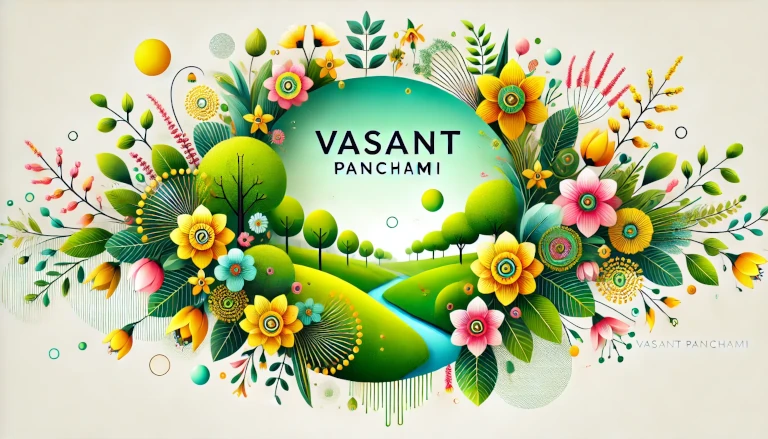Environmental sustainability has become a critical issue in today’s world. However, the concept of living in harmony with nature is not new. Ancient Hindu traditions have long advocated for practices that are in tune with the environment, emphasizing respect for all forms of life and the natural world. These traditions, some of which are still practiced today, offer valuable lessons on how to promote sustainability and protect our planet.
In this blog post, we’ll explore some key Hindu ancient traditions that promote environmental sustainability and how these practices can inspire us to live more eco-friendly lives today.
1. Worship of Nature 🌿🌳
One of the most prominent aspects of Hinduism is the reverence for nature. Trees, rivers, mountains, and animals are often considered sacred and are worshipped as manifestations of the divine. For example:
- Tulsi plant 🌿 is considered holy and is often grown in Hindu households. The Tulsi plant not only has medicinal properties but also improves air quality by releasing oxygen.
- The Ganga River 🌊 is revered as a goddess and is worshipped for its life-sustaining qualities. This deep respect for rivers promotes the idea that water sources should be protected and kept clean.
This deep connection with nature encourages people to treat the environment with respect and care, aligning with modern principles of environmental conservation.
2. Ahimsa (Non-Violence) 🕊️
The concept of Ahimsa, or non-violence, is a core principle in Hindu philosophy. While it is often associated with non-violence toward humans and animals, it also extends to the environment. Hindus believe that causing harm to any living being, including plants and animals, disrupts the balance of nature.
By practicing Ahimsa, one is encouraged to reduce their environmental impact by avoiding waste, pollution, and the unnecessary destruction of natural resources. This philosophy directly supports sustainable living and encourages a lifestyle that minimizes harm to the planet.
3. Vegetarianism 🥗
Many Hindus follow a vegetarian diet as part of their religious practices. Vegetarianism is not only linked to the principle of Ahimsa but also promotes environmental sustainability. Plant-based diets are known to have a smaller ecological footprint compared to meat-based diets. They require fewer resources like water, land, and energy, and generate less greenhouse gas emissions.
By choosing a vegetarian lifestyle, Hindus are indirectly contributing to the reduction of environmental degradation and promoting a more sustainable food system.
4. Yajna (Sacred Fire Ritual) 🔥
The Yajna is an ancient Hindu ritual that involves offering oblations to the fire. While it has spiritual significance, it also reflects an understanding of the natural elements (fire, air, water, earth). In ancient times, Yajnas were performed with materials that were eco-friendly, such as natural herbs, ghee (clarified butter), and wood from sustainable sources.
The principle behind Yajna is to give back to nature as a form of gratitude, which teaches us about sustainable consumption and ensuring that what we take from nature is returned in some form.
5. Preserving Biodiversity Through Festivals 🎋🎉
Many Hindu festivals are centered around nature and agricultural cycles. Festivals like:
- Makar Sankranti celebrate the harvest and honor the sun, which is essential for crop growth.
- Vasant Panchami marks the onset of spring and the blooming of flowers, symbolizing the renewal of life.
- Nag Panchami 🐍 is dedicated to snakes, which are crucial for maintaining balance in the ecosystem by controlling pests.
These festivals remind people of the importance of biodiversity and the need to protect different species and their habitats. They foster a connection to the environment and emphasize the need to live in harmony with nature.
6. Simple Living, High Thinking (Santosha) 🌱
The principle of Santosha, or contentment, encourages people to live simply and focus on spiritual rather than material wealth. By leading a life of minimalism, one reduces their consumption of natural resources and avoids unnecessary waste.
This philosophy of simple living naturally promotes sustainability because it encourages people to use only what they need, reducing their environmental impact and helping preserve the earth’s resources for future generations.
7. Sacred Groves (Devara Kaadu) 🌳
In many parts of India, particularly in rural areas, sacred groves or Devara Kaadu are patches of forest that are protected in the name of deities. These groves are often considered holy and untouched by human exploitation. Sacred groves act as biodiversity hotspots, preserving a variety of plant and animal species, some of which are endangered.
These groves also help in maintaining the ecological balance by conserving soil, water, and air quality. The idea of preserving forests for spiritual and ecological reasons is a powerful reminder of the importance of conservation in today’s world.
Conclusion: Ancient Wisdom for Modern Sustainability 🕉️🌍
The ancient traditions of Hinduism are deeply rooted in respect for nature and the belief that humans are a part of, not separate from, the environment. By embracing practices like non-violence, vegetarianism, and the worship of natural elements, Hindu traditions promote a harmonious relationship with the environment.
These Hindu ancient traditions offer timeless wisdom for the modern world as we face environmental challenges such as climate change, deforestation, and pollution. By drawing inspiration from these practices, we can move towards a more sustainable and eco-friendly future.
Discover more from Green Ecosystem - Renewable Energy, Agriculture, and Environmental Sustainability
Subscribe to get the latest posts sent to your email.


